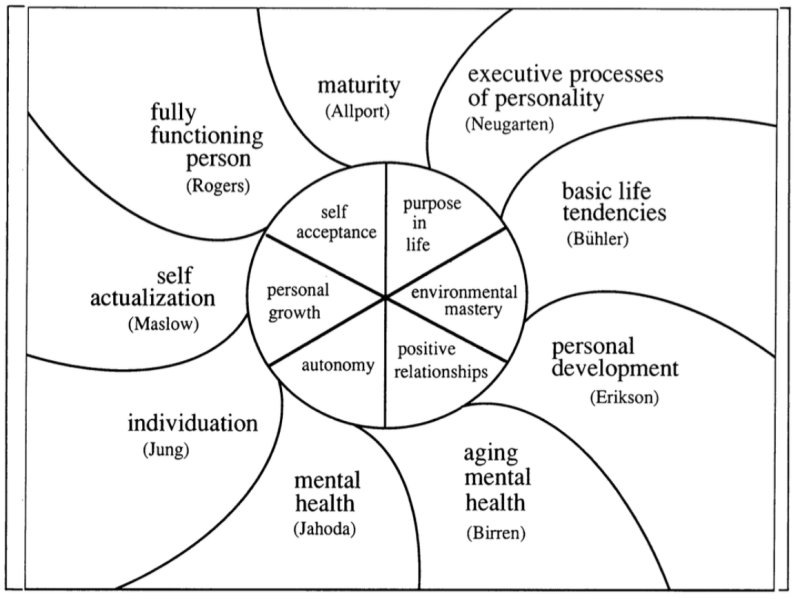Finding joy that lasts: Experts share keys to well-being as we age
Cruddy moods are hard to avoid, especially on those looming icy, wet and blustery winter mornings, or when the dog eats something evidently indigestible or you get cut off on Route 1.
But what about consistently feeling happier – maybe half as chipper as a college cheerleader or greeter at Walmart? Wouldn’t that be good, especially as we age and quality time is important because, um, there’s less of it left.
Well, there is a lot of approaches, ranging from stuff that will cost you retirement savings or risk your life (travel to the Pitcairn Islands or cliff diving based on some bucket list you regret devising) to enjoying simpler things like your favorite shoes or a cup of good coffee.
Experts say enduring well-being won’t come with trips abroad or to Starbucks, but grows following any sound advice a bit. Accepting that things are pretty good, shedding some baggage and heading in the right direction will multiply. (In fact, experts actually warn of a “happiness paradox,” where overly obsessive efforts to be happier have the opposite result.)
Carol Ryff, a professor of psychology at the University of Wisconsin, came up with a pretty slick idea about this stuff 15 years ago in research titled plainly “Psychological Well-Being in Adult Life.” She refined theories about well-being from nine leading thinkers and developed six fundamentals we can work on.
- Self-acceptance: now and in the past
- Positive connections: Trusting relationships and improved empathy
- Autonomy: Self-reliance; resisting social pressure
- Environmental mastery: Managing our environment; adapting to opportunities, change and new experiences
- Purpose: Goals and feeling life has meaning
- Growth: Personal development and self-awareness
Some experts say we get a stronger sense of well-being with age, but Ryff said it is more nuanced. Environmental mastery and autonomy increase in seniors, her research found, but purpose and growth slip. Self-acceptance and positive relations need care.
The psychiatrist Martin Seligman’s has similar ideas about well-being, promoting positive psychology as an alternative to an unhealthy focus on what’s wrong – or “learned helplessness.” He uses the acronym PERMA, for positive emotions, engagement, relationships, meaning and accomplishment. Lots about him online too.
“Aging with emotional ease is not about avoiding challenges but about cultivating the supports and practices that help us move through them,” says Catrina Stiller a therapist and founder and CEO of HealTree in Lewes.
Even the ancient Greeks, through something called Eudaimonics, suggested that goals, growth, good relationships, independence and the ability to manage our own lives are critical.
You’ve also probably heard about the Harvard Study of Adult Development, where researchers followed 724 people in 1938, and now 2,000 descendants, to see what makes people “flourish”. Its findings, which make introverts squirm, found social interactions – even small ones – contribute a lot to well-being. The popular Blue Zone research had similar findings from areas worldwide where people were happiest.
“Those who navigate this stage of life most smoothly often have a network of friends, family, or community,” says Stiller. “Staying connected really matters.”
Theresa Vial a therapist and owner of Anchored Wellness in Lewes, agrees and believes resilience is key – bouncing back from a life challenge or even a testy mood.
“Positive coping skills, and supportive relationships: family, friends, community, therapy, help us deepen our resilience,” she said. “We grow not only older, but wiser, more rooted and more whole.”
Resilience, experts say, often involves letting go of troubling stuff we’ve accumulated over more than six decades – reminding ourselves that what noisily rattles around in our heads often can’t be changed and doesn’t really matter – things like regrets, insults, past mistakes, or worry about future events. Or simmering anger at the guy who cut you off on Route 1.
That leads to the research showing life improves with another strategy to quiet some of that noise.
“Mindfulness allows us to focus on the present moment,” says Vial. “When we choose to be mindful in everyday moments – the good, the bad, and everything in between – we’re left with memories that are filled with meaning,” she says.
Mindfulness isn’t that difficult, experts say, and there are many resources online. Greatly simplified, the objective is clearing your mind of self-talk clatter by focusing on something else – attention to breaths or visualizations or taking a walk or thoroughly enjoying that good coffee and focusing on the “present moment.”
Experts say you get better at it with practice, and the skill expands to build our ability to regularly vanquish the brain trash ... and be happier.






















































